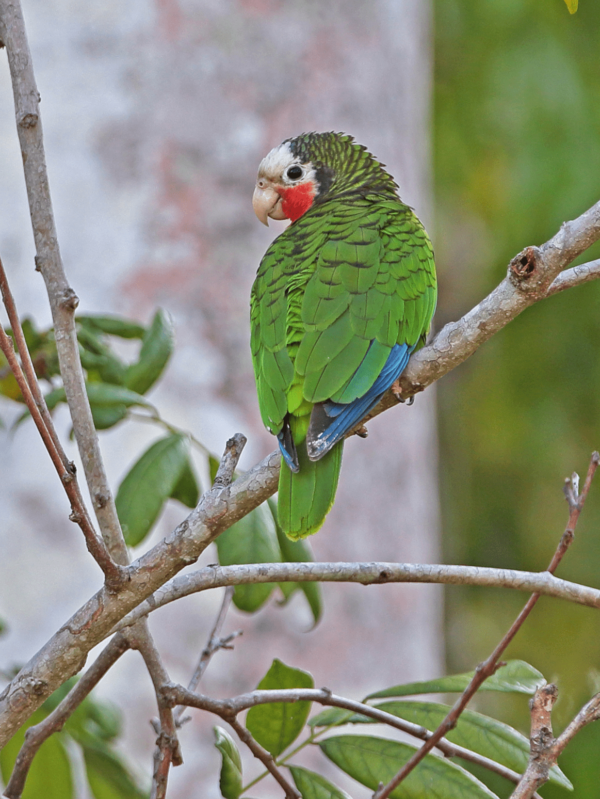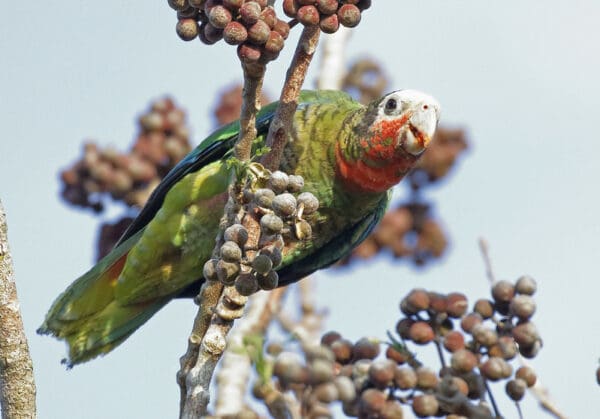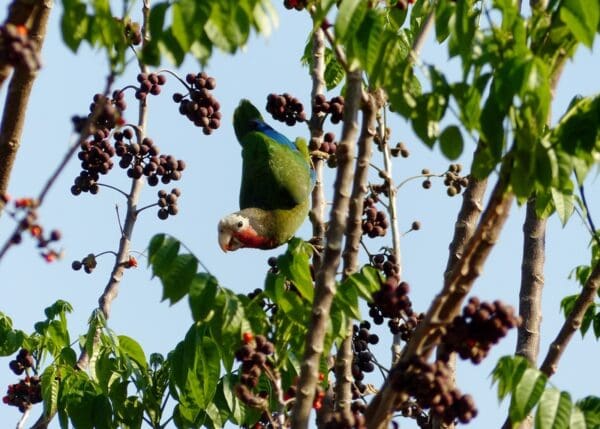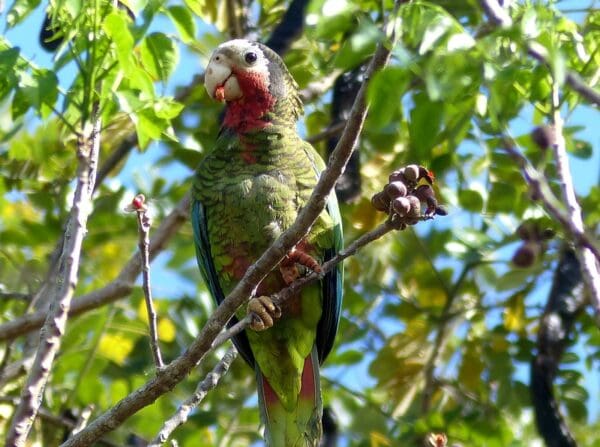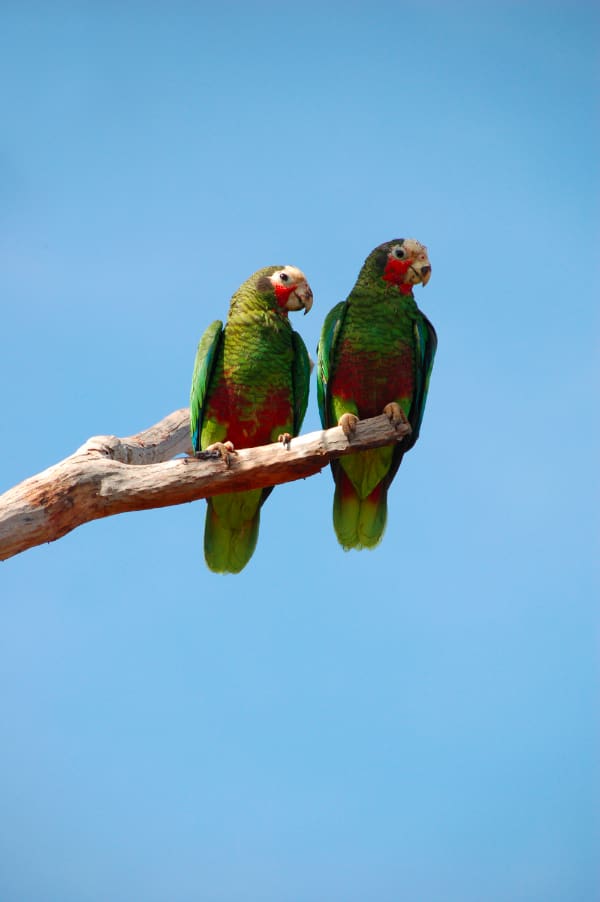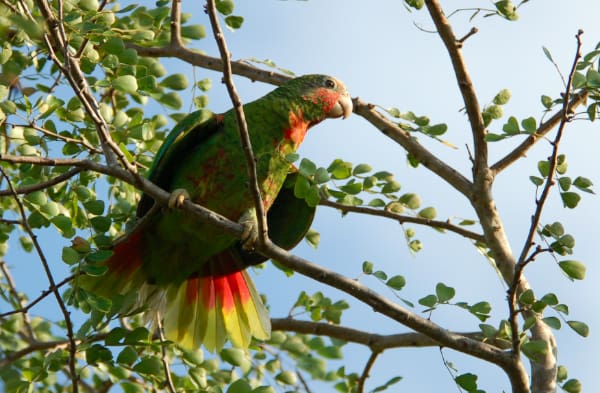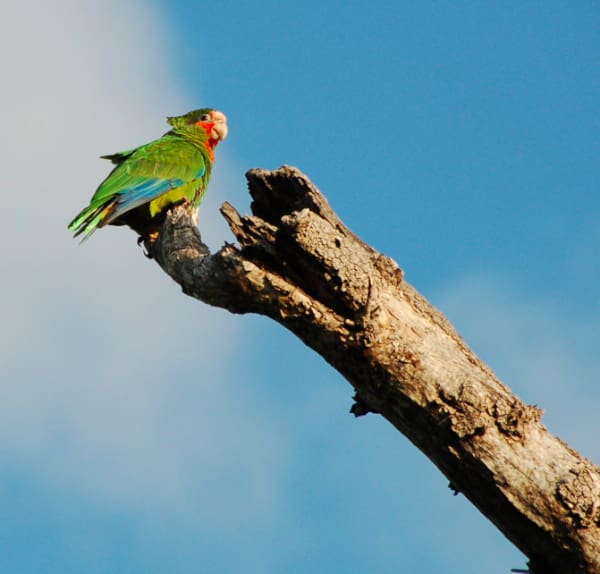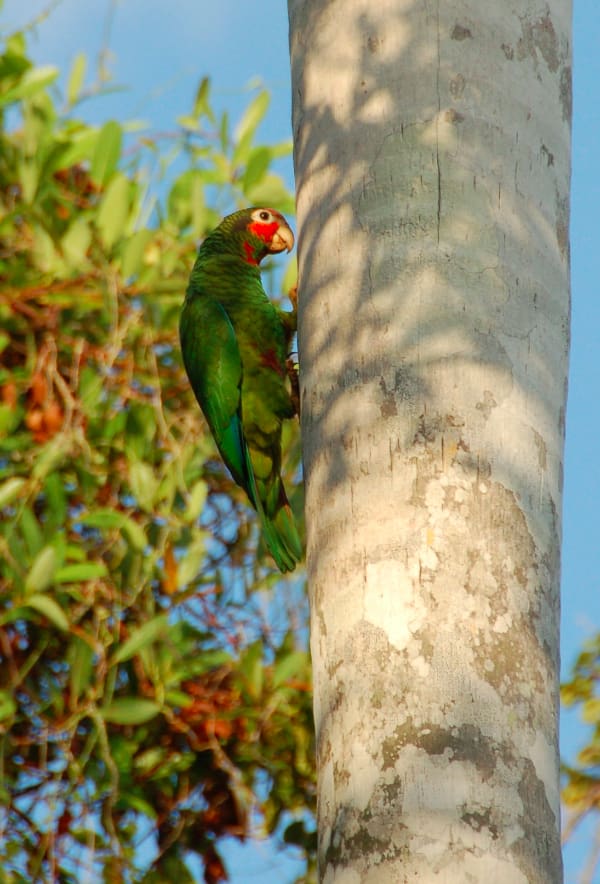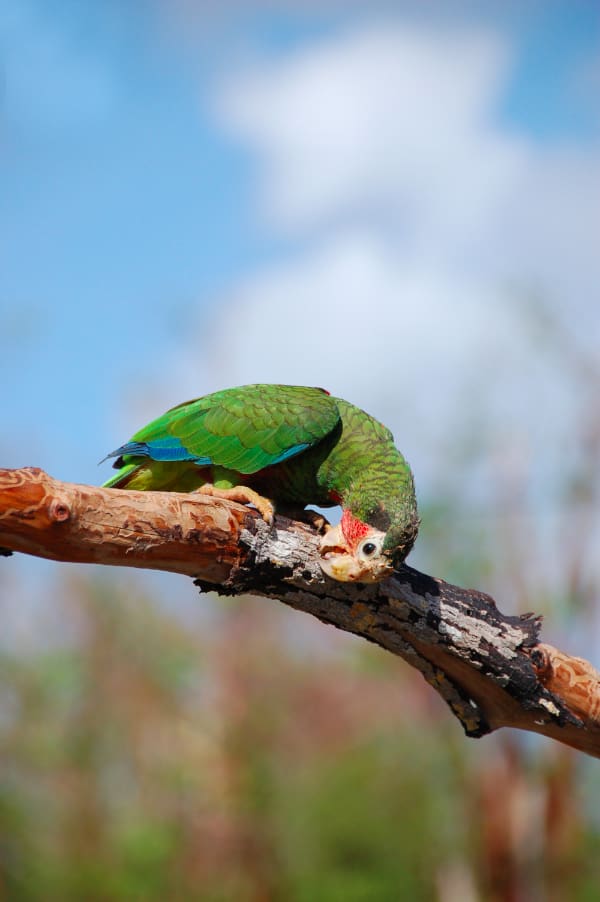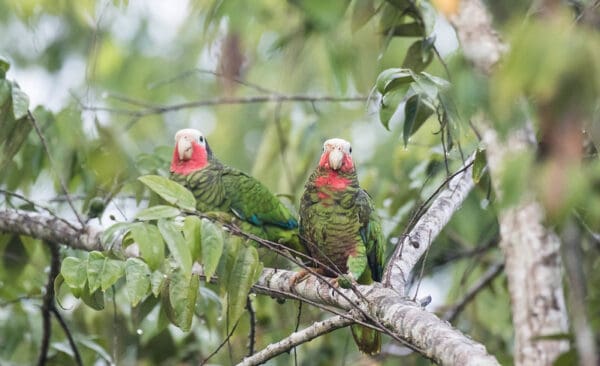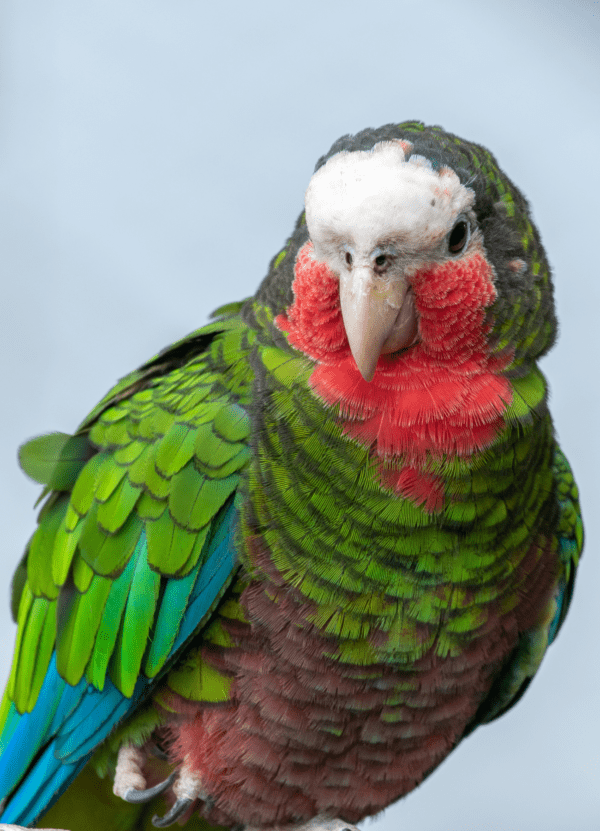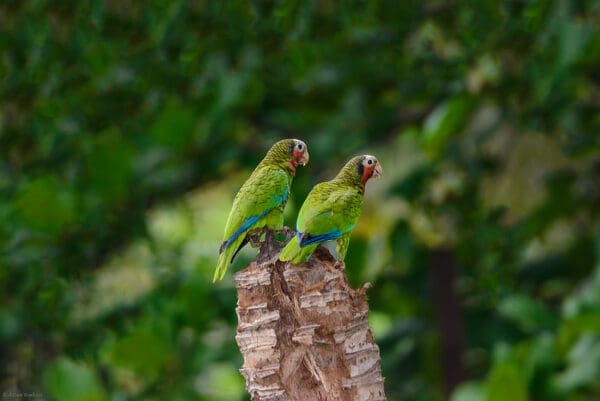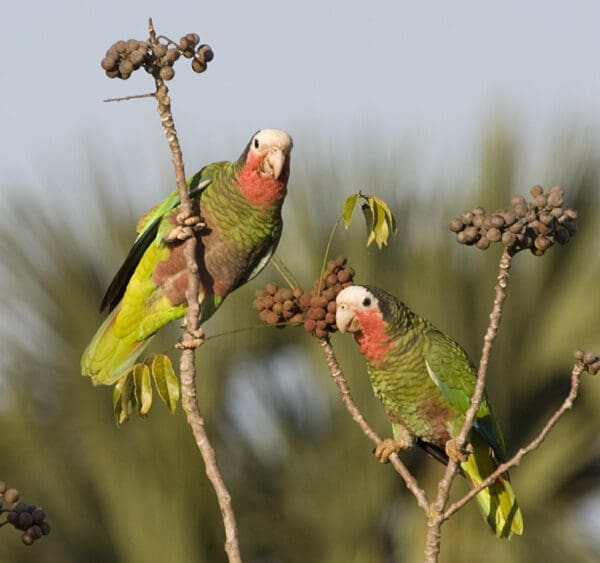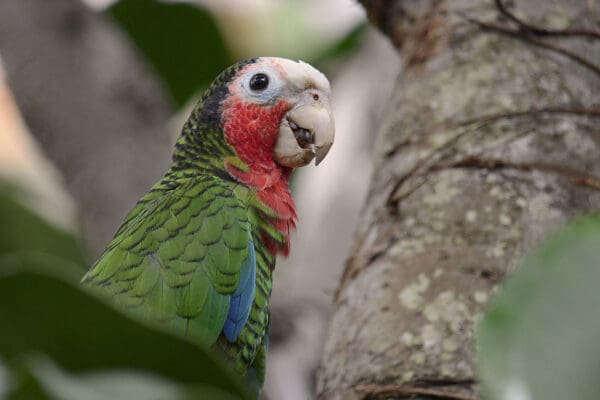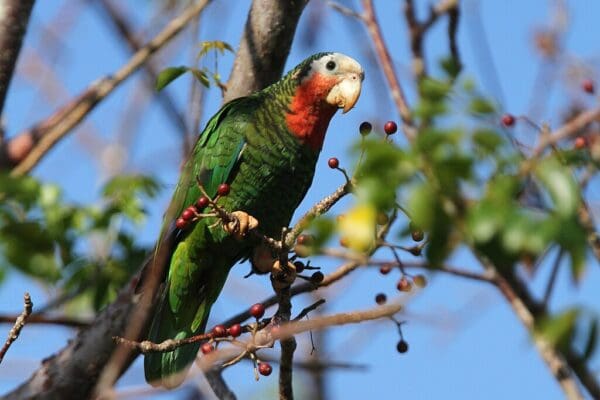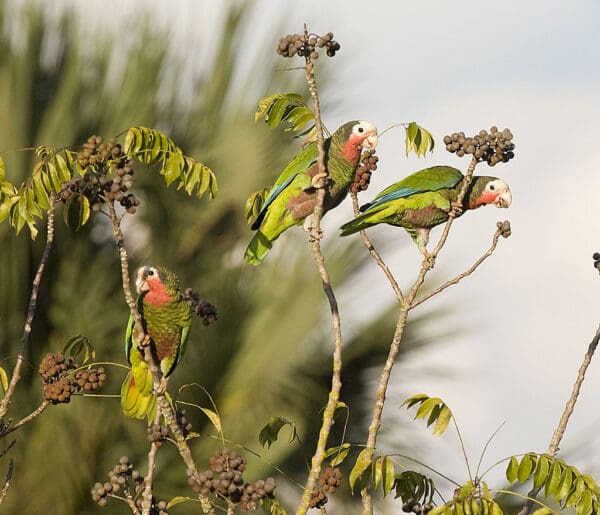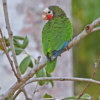
![© Dave Curtis [CC BY-SA 2.0] via Flickr A wild Cuban Amazon feeds in a tree](https://parrots.org/wp-content/uploads/2023/01/wpt_Cuban-Amazon_1116-34-100x100.jpg)
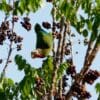
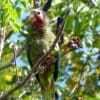
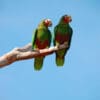
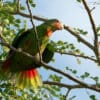
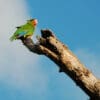
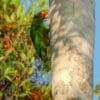
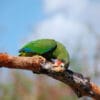
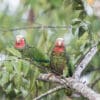
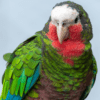
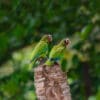
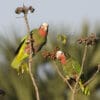
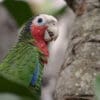
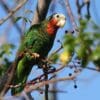
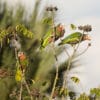
DID YOU KNOW?
The Bahama Parrot, a subspecies of the Cuban Amazon, on the island of Abaco is the only parrot that nests in underground holes formed by rainwater dissolving limestone rock.

Amazona

leucocephala
Size:
32 cm (12.5 in)
Weight:
240-262 g (8.4-9.1 oz)
Subspecies including nominate:
five: A.l. leucocephala, A.l. palmarum, A.l. caymanesis, A.l. hesterna, A.l. bahamensis
Colour Adult:
A.l. leucocephala: Both adults green with black scalloping to feathers; forehead, forecrown, and area around eyes white; pink/red lores, cheeks and throat; ear coverts dull black; abdominal patch maroon; tail green with red at base. Beak horn-coloured. Eye ring white, eye olive/green.
A.l. palmarum: Both adults darker green, abdominal patch more extensive; deeper red to throat.
A.l. caymanensis: Both adults more yellow/green, with less evident scalloping to feathers; breast and rump tinged with blue; white on head confined to forehead area; green on sides of neck separates red of throat from the cheek area; less extensive abdominal patch; larger.
A.l. hesterna: Both adults more yellow/green; more evident maroon abdominal patch; cheeks and throat deeper in colour; smaller in size.
A.l. bahamensis: Both adults as in leucocephala, but abdominal patch small or missing; white on crown extends back further, reaching below eyes to lores and upper cheeks; less red at base of tail; larger.
Colour Juvenile:
As in adult but with less black edges to body feathers, white of forecrown washed with yellow and less maroon on belly.
Call:
Wide variety of loud shrieks, whistles, screeches, some trumpet-like. Some notes are drawn out and resonant.
More Information:
Content Sources:
CITES
Avibase
Birds Caribbean
BirdLife International
Cornell Lab of Ornithology/Birds of the World
Parrots: A Guide to Parrots of the World, Juniper and Parr, 1998
Parrots: Status Survey and Conservation Plan 2000-2004, Snyder, McGowan, Gilardi and Grajal, 2000.
Parrots of the World, Forshaw and Cooper, 1989. 2010 edition
Parrots of the World, Forshaw, 2006.
Parrots in Aviculture, Low, 1992.
Psittacine Aviculture, Schubot, Clubb and Clubb, 1992.
Captive Status:
Rare until 1970s then increased breeding in captivity.
Longevity:
Probably up to 50-60 yrs.
Housing:
Aviary or suspended cage with a minimum length 3 m (9.8 ft).
Diet:
Fruit – any type especially apple, pear, orange, banana, cactus fruits, pomegranate, forming about 30 % of the diet; fresh vegetables such as carrot, celery, green peas, beans, fresh corn, green leaves; spray millet and limited mixed seed, cooked beans and pulses, complete kibble.
Enrichment:
Bathing; foot toys, destructible (non-toxic) toys, non-destructible (non-toxic plastic) toys, food-finder toys, preening toys, different texture and size hanging perch toys, fir branches, push-and-pull toys (sliding up and down), vegetable tanned leather toys.
Nest Box Size:
12″ x 12″ x 24″ ( 30.5 cm x 30.5 cm x 61 cm) vertical box.
Clutch Size:
3 to 5
Fledging Age:
8 weeks
Hatch Weight:
—
Peak Weight:
—
Weaning Weight:
—
World Population:
16,000-27,000 mature individuals, decreasing.
IUCN Red List Status:
Near Threatened
CITES Listing:
Appendix I
Threat Summary:
Originally much more numerous throughout Cuba; now lost from parts of its former range. Habitat loss is severe; hurricane damage to nesting trees and loss of trees due to damage inflicted while collecting chicks. Trapping for wild bird trade also takes a toll.
Range:
A.l. leucocephala: E and C Cuba.
A.l. palmarum: Isla de la Juventud and W Cuba, east to Villa Clara province.
A.l. caymanensis: Grand Cayman Island.
A.l. hesterna: Cayman Brac and formerly Little Cayman Islands.
A.l. bahamensis: Great Inagua and Abaco, in Bahama Islands; formerly on other islands in Bahamas.
Habitat:
Occurs in pine forest, broadleaved woodland, palm groves, mangroves, plantations, cultivated land with trees and gardens. Up to 1000 m (3280 ft).
Wild Diet:
A variety of plants/fruits/seeds such as unripe Pinus caribaea, plus Bursera, Ficus, Petitia, Smilex, Sabal, Duranta, Exothea, Ernodia, Ilex, Zamia, Tabebuia, Acacia, Metopium, Tetrazygia, Myrceanthes, Coccoloba, Conocarpus, Swietenia, Manilkara, Cupania, Lysiloma, and several palms; also stems of Cassytha, Avicennia and Bucida blossoms, plus cultivated fruit such as mango and papaya.
Ecology and Behaviour:
Generally found in small groups while foraging; bigger groups where food is abundant. In pairs for breeding. Roosts communally.
Clutch and Egg Size:
3 to 5, rounded eggs, 35 x 28 mm (1.3 x 1.1 in)
Breeding Season:
March-June; nest is in cavity in Avicennia mangrove and various palms.
Related Links:
—
